The Masters of the Earth (The Green Death)
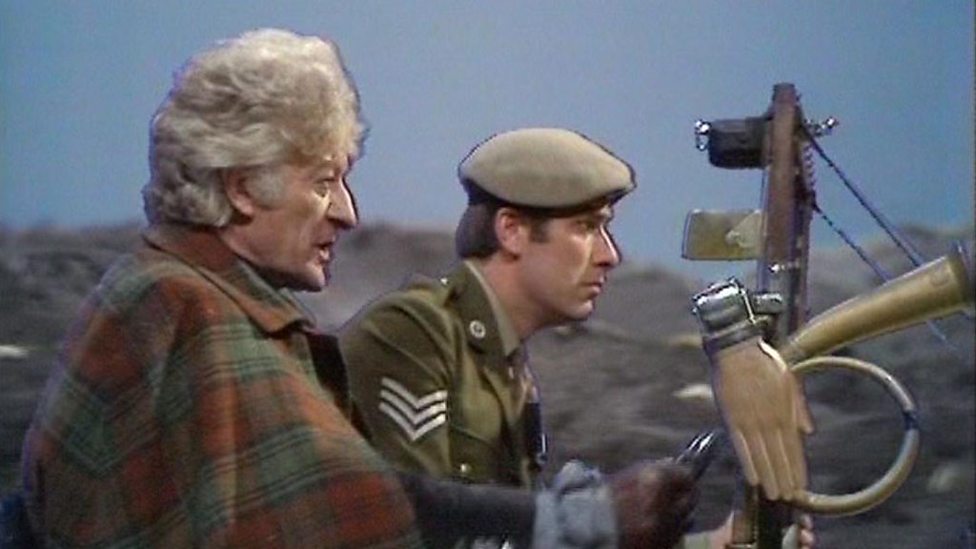 It’s May 19th, 1973. Between now and June 23rd, forty-eight will die in a plane crash in India, six will die in a pair of IRA bombings in Coleraine, thirteen will die in Argentina when snipers open fire on protesters in the Ezeiza massacre, and six year old boy in Kingston upon Hull will die in the first fire of Peter Dinsdale’s near decade-long spree of arson. This relatively sparse major death toll masks the steady progression of the world towards the eschaton. Also, The Green Death airs.
It’s May 19th, 1973. Between now and June 23rd, forty-eight will die in a plane crash in India, six will die in a pair of IRA bombings in Coleraine, thirteen will die in Argentina when snipers open fire on protesters in the Ezeiza massacre, and six year old boy in Kingston upon Hull will die in the first fire of Peter Dinsdale’s near decade-long spree of arson. This relatively sparse major death toll masks the steady progression of the world towards the eschaton. Also, The Green Death airs.
The Green Death offers a genuinely uncanny trick of perspective—like one of those lenticular images that shifts as you move in front of it. One second it’s the most 1973 thing imaginable, a cornucopia of glam semiotics. The next it’s a strangely contemporary thing, with concerns that have not aged a day. The obvious explanation for this is that very little has changed in forty-seven years—corporations continue to be killing the world according to the logic of a supposedly dispassionate algorithm. Sure, the climate crisis has edged out industrial waste and the sheer size of the computers has ratcheted downwards, but the basic concerns really are the same. We knew what needed to be done a half-century ago, we didn’t do it, and now we’re watching nervously as the inevitable cascade begins.
None of this is wrong per se. The Green Death’s earnest environmentalism really has aged quite well, looking more like clear-headed moral certainty than po-faced lecturing. The story remains stylistically of its time, but in a way that feels like a reverse remake—a story from the 2020s that got a campy 1970s remake. This, however, is veering dangerously into Philip Sandifer territory. Let’s not get too wrapped up in supernatural implications. After all, this is scarcely the first oddly prescient Doctor Who story we’ve seen, and you can hardly be surprised that 1973 is more prescient than 1963. Watching the present emerge into focus is an even more boring way to watch Doctor Who than trying to decode the secret alchemical messages about utopia.
Let’s ask instead what’s changed between this and the previous evil computer story, The War Machines. The most obvious difference is between WOTAN and BOSS on the level of personality. Which, I suppose the more basic one is that BOSS has a personality. WOTAN is simply a system of automation run amok—an analogue for capitalism where the wrong value is pursued with a ruthless maximalism that suddenly highlights the flaw in the value. And this is true of most of the computers up to this point. Consider the unthinking rigidity of the computer in The Ice Warriors, or, more broadly, the treatment of the Cybermen as forces of dispassionate, emotionless control. In every case, computers are fundamentally remote, doing what they are programmed to do, only to an extent catastrophically unanticipated by their programmers.
BOSS is a tremendous departure from this. As explained, he was connected to a human brain and learned the vast and magic power of inefficiency, with which he ascended to godhood.…

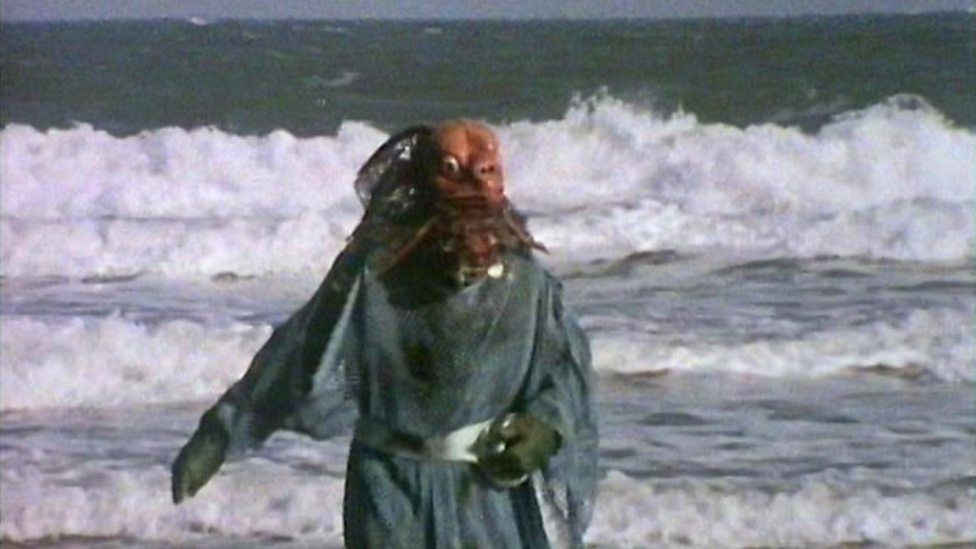 It’s February 26th, 1972. Between now and April 1st, 125 will die in a coal sludge spill in West Virginia, 19 will die in an avalanche on Mount Fuji, and the Easter Offensive wll begin in the Vietnam War, lasting into Octoer and resulting in somewhere between fifty and a hundred thousand deaths. In addition, M.C. Escher will die in a hospital in the Netherlands, the world will inch ever closer to the eschaton, and The Sea Devils will air.
It’s February 26th, 1972. Between now and April 1st, 125 will die in a coal sludge spill in West Virginia, 19 will die in an avalanche on Mount Fuji, and the Easter Offensive wll begin in the Vietnam War, lasting into Octoer and resulting in somewhere between fifty and a hundred thousand deaths. In addition, M.C. Escher will die in a hospital in the Netherlands, the world will inch ever closer to the eschaton, and The Sea Devils will air.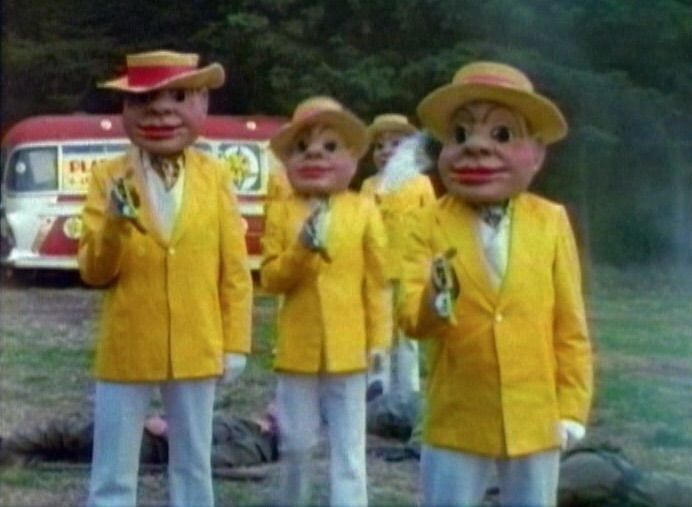 The rule, apparently, is that anyone talking seriously about this story has to start with Paul Cornell’s 1993 review of it. I’m not entirely sure why this is the rule—presumably because Cornell is surely terribly embarrassed by the review now that he’s firmly into the “everything is lovely, especially fandom and the Pertwee era, let’s all just get along and support New Labour” phase of his career instead of the “actually doing anything worthwhile” one. Or perhaps just because, in spite of Cornell’s latter day shame at having ever had interesting opinions, the review remains one of the most solid and important things ever said about the Pertwee era. It’s not that Cornell is correct per se—his vituperative denunciations of the entire cast along with everyone else involved in the story is excessive, not least in his claim that there are only two competent actors in the era, which more than doubles the actual number, although he at least correctly identifies one of them. It’s just that it’s petty, mean-spirited, and therefore exactly what the era needs, culminating in the utterly savage kicker that Barry Letts and Terrence Dicks “exiled the Doctor to Earth and made him a Tory.”
The rule, apparently, is that anyone talking seriously about this story has to start with Paul Cornell’s 1993 review of it. I’m not entirely sure why this is the rule—presumably because Cornell is surely terribly embarrassed by the review now that he’s firmly into the “everything is lovely, especially fandom and the Pertwee era, let’s all just get along and support New Labour” phase of his career instead of the “actually doing anything worthwhile” one. Or perhaps just because, in spite of Cornell’s latter day shame at having ever had interesting opinions, the review remains one of the most solid and important things ever said about the Pertwee era. It’s not that Cornell is correct per se—his vituperative denunciations of the entire cast along with everyone else involved in the story is excessive, not least in his claim that there are only two competent actors in the era, which more than doubles the actual number, although he at least correctly identifies one of them. It’s just that it’s petty, mean-spirited, and therefore exactly what the era needs, culminating in the utterly savage kicker that Barry Letts and Terrence Dicks “exiled the Doctor to Earth and made him a Tory.”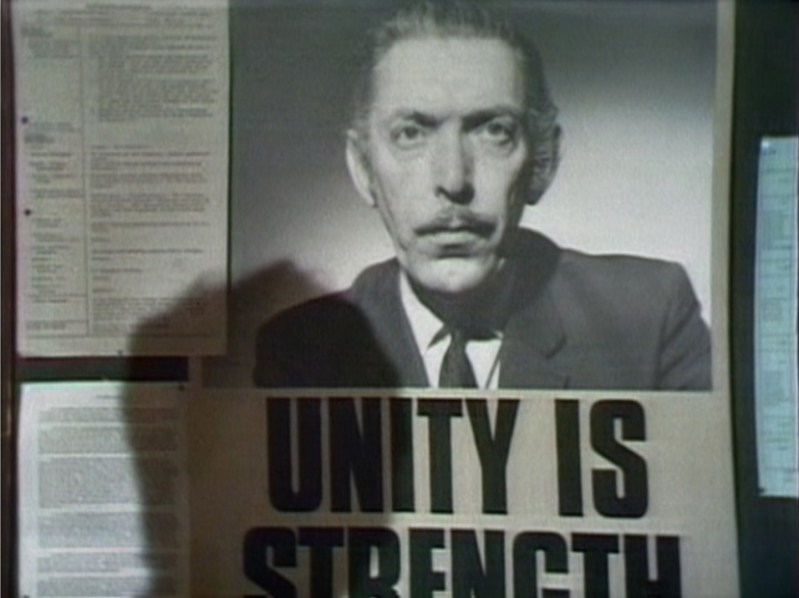 It’s May 9th, 1970. Between now and June 20th, Henry Marrow will be killed in North Carolina in a racist hate crime, two will die when police fire into a crowd at a demonstration at Jackson State University, a fourteen-year old fan will die after being struck in the head by a foul ball at a Major League Baseball game, eleven will die in Israel in a Palestinian terrorist attack, six when a plane crashes into an Interstate Highway in Florida. In addition, E.M. Forster will die of a stroke, Abraham Maslow will die of a heart attack, and unnumbered people will die in the ongoing Vietnam War whilst the world slides ever closer to the eschaton. Also, Inferno airs.
It’s May 9th, 1970. Between now and June 20th, Henry Marrow will be killed in North Carolina in a racist hate crime, two will die when police fire into a crowd at a demonstration at Jackson State University, a fourteen-year old fan will die after being struck in the head by a foul ball at a Major League Baseball game, eleven will die in Israel in a Palestinian terrorist attack, six when a plane crashes into an Interstate Highway in Florida. In addition, E.M. Forster will die of a stroke, Abraham Maslow will die of a heart attack, and unnumbered people will die in the ongoing Vietnam War whilst the world slides ever closer to the eschaton. Also, Inferno airs.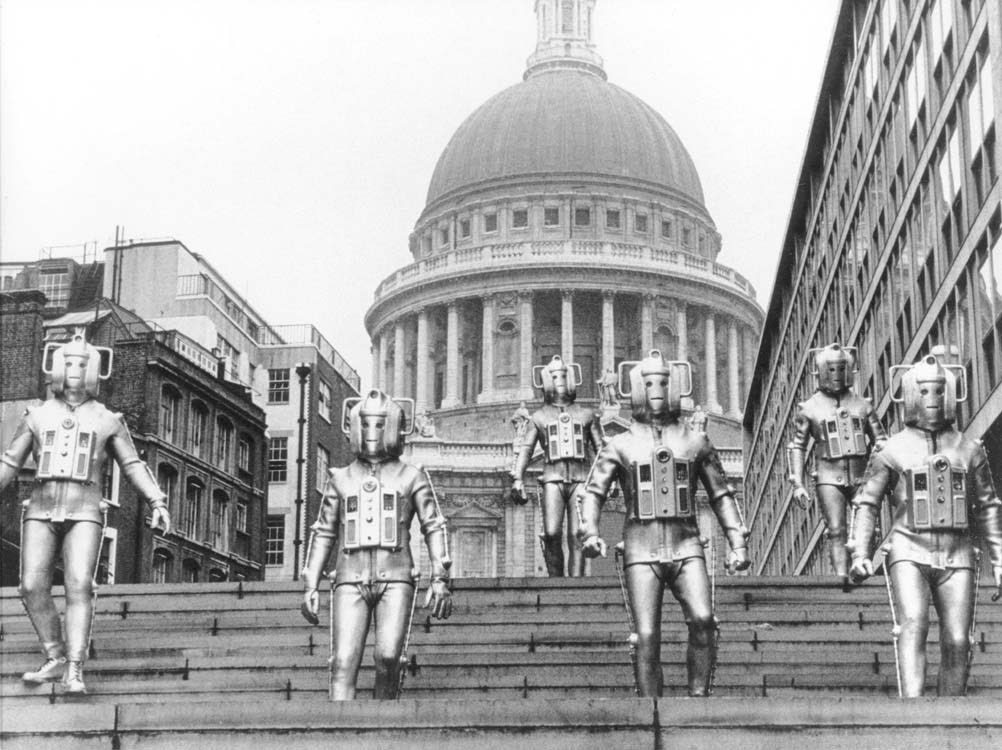 It’s November 2nd, 1968. Between now and December 21st, a mine explosion will kill seventy-eight in West Virginia, twenty-two will die in a factory fire in Glasgow, two will be shot by the Zodiac Killer, and numerous people will die in the Vietnam War, including 374 civilians in Laos when the US Military targets a cave in the incorrect belief that it housed Viet Cong troops and not refugees. In addition, Upton Sinclair will die in a nursing home in New Jersey, Enid Blyton will die in a nursing home in London, and John Steinbeck will die of heart failure in New York. A flu pandemic rages, ultimately killing one million, and the world drifts ever-closer to the eschaton. Also, The Invasion airs.
It’s November 2nd, 1968. Between now and December 21st, a mine explosion will kill seventy-eight in West Virginia, twenty-two will die in a factory fire in Glasgow, two will be shot by the Zodiac Killer, and numerous people will die in the Vietnam War, including 374 civilians in Laos when the US Military targets a cave in the incorrect belief that it housed Viet Cong troops and not refugees. In addition, Upton Sinclair will die in a nursing home in New Jersey, Enid Blyton will die in a nursing home in London, and John Steinbeck will die of heart failure in New York. A flu pandemic rages, ultimately killing one million, and the world drifts ever-closer to the eschaton. Also, The Invasion airs.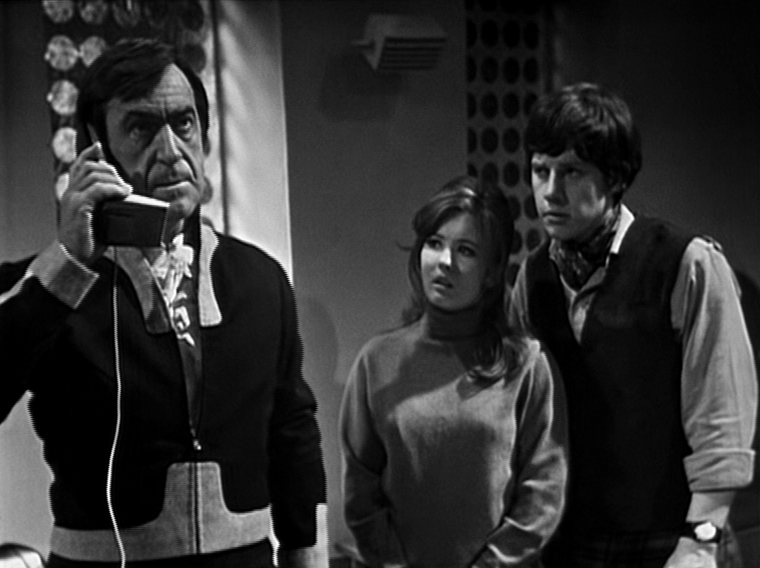 It’s December 23rd, 1967. Between now and January 27th, thirteen people will die in England when a train collides with a truck that had stalled on the tracks, 380 will die in a Sicilian earthquake, and 121 will die in a pair of submarine crashes in the Mediterranean. In addition, Mike Casparak will die of liver failure fifteen days after being the first successful recipient of a human heart transplant in the United States, while Bill Masterton will die of a brain injury sustained during a National Hockey League game, and huge numbers will die in the still-continuing Vietnam War. Also the world will progress ever-closer to the eschaton, and The Enemy of the World airs.
It’s December 23rd, 1967. Between now and January 27th, thirteen people will die in England when a train collides with a truck that had stalled on the tracks, 380 will die in a Sicilian earthquake, and 121 will die in a pair of submarine crashes in the Mediterranean. In addition, Mike Casparak will die of liver failure fifteen days after being the first successful recipient of a human heart transplant in the United States, while Bill Masterton will die of a brain injury sustained during a National Hockey League game, and huge numbers will die in the still-continuing Vietnam War. Also the world will progress ever-closer to the eschaton, and The Enemy of the World airs.